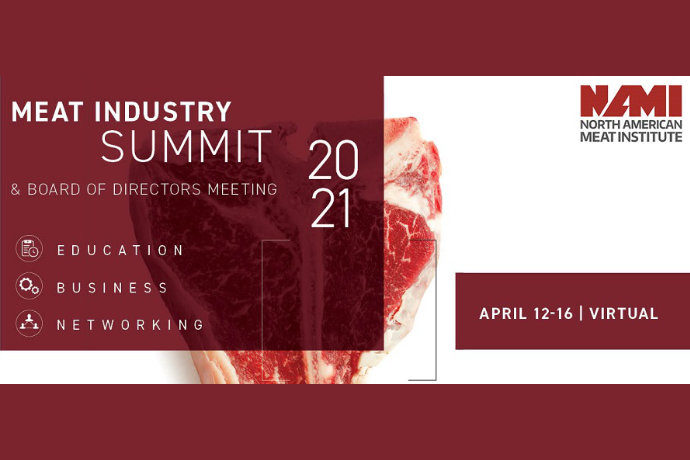WASHINGTON – From the EAT-Lancet Commission to the United Nations Food Systems Summit, there are many voices in society attacking animal-based foods, said Frederic Leroy, associate professor at Vrije Universiteit Brussel.
During a presentation at the virtual North American Meat Institute’s Meat Industry Summit on April 14, Leroy said he supports efforts to promote the basic building blocks of essential nutrition as a method of combatting some of the sensational messaging directed against animal-based foods.
Leroy said some of the groups proposing a shift away from animal proteins would essentially like to shut down animal-based agriculture. As examples of current messaging, he referenced recent headlines and tweets from sources such as the University of Oxford boasting that vegan diets are the best way one can reduce their carbon footprint.
Abandoning animal agriculture would have enormous implications on the environment in ways the data these sources present do not consider, Leroy said.
“If you take out animal agriculture, it’s not just about the food – it’s about the entire ecosystem,” Leroy said.
When it comes to the data used to suggest plant-based proteins might be preferable from a health perspective over animal-based proteins, Leroy said that is too simplistic of a conclusion.
“The dietary contexts will tell you if meats give you a positive effect or negative effect,” Leroy said. “It’s not that red meat is intrinsically bad; it’s how the diet is formulated.”
Specifically, Leroy suggested dietary problems likely have more to do with contemporary additions to the Western diet as opposed to the general use of animal proteins. When pointing to the value of animal-based foods, Leroy said there are many aspects of nutrition to consider.
“Animal-sourced foods are about much more than protein,” Leroy said. “We tend to over-emphasize the protein part.”
Leroy pointed out many of the meat alternatives on the market, such as egg substitutes or vegan burgers, are typically filled with ingredients such as protein extracts, refined oils, and additives. As such, it is hard to get the same quality of protein from such products.
Moreover, he suggested there is a broader motivation behind such products, and consumers should question some of the assumptions that are now being made.
“They are not about offering an alternative, but about eliminating a type of product on the market altogether,” Leroy said.
Leroy said some of the results of the efforts of the EAT-Lancet Commission might ultimately involve changing the outlook for food through school curriculum, and all these efforts could ultimately result in a lack of access to animal-based foods.
“The radicalism involved is shutting down true dialogue,” Leroy said.
Ultimately, Leroy suggested looking at the impact of a wholesome diet comprised of the best from both the plant and animal side and studying what that does for people with metabolic issues.


